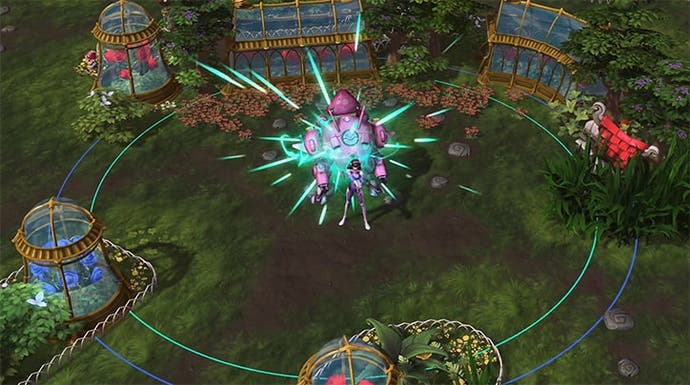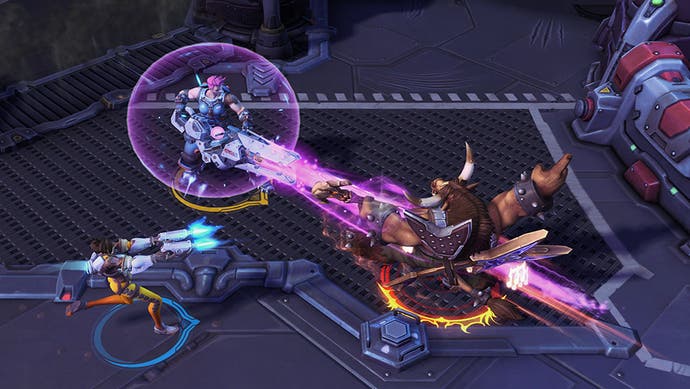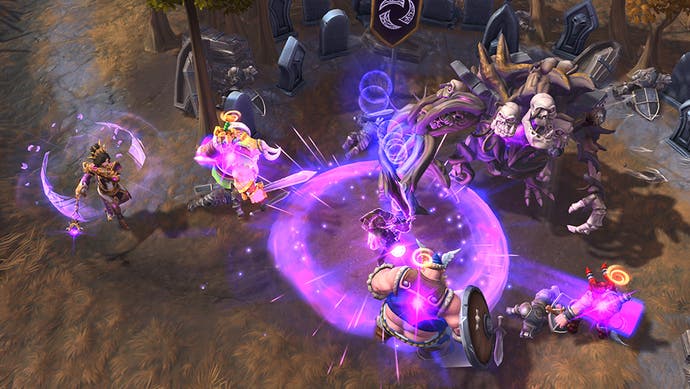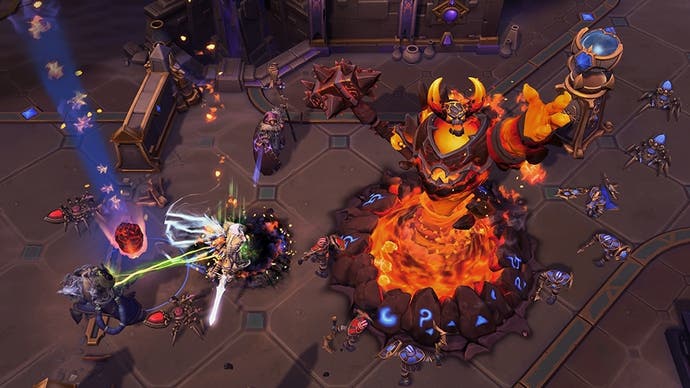FemmeFerocity is challenging esports' status quo
"Right now our team is looking very promising."
"If we had environments [in esports] where women could be mentored, where their feminine traits were embraced and encouraged, and they were given a competitive environment to play and learn at the highest levels, they would thrive in a way we've never seen before."
That's the vision of Jules Scott, the co-founder and performance coach of FemmeFerocity, an organisation aiming "to legitimize feminine personalities as equal competitors in esports." It's currently in the process of assembling a team to compete in the upcoming Heroes of the Storm Global Championship's Open Division. All genders are welcome to try out, but the goal is to end up with a "feminine-coded roster."
"Feminine" is an intentionally broad term. On Reddit, the team emphasised that it means that "FemmeFerocity is not female-exclusive. We want to champion femininity as a whole. Feminine-coded includes other people who exhibit primarily feminine traits."
These traits are often undervalued or even derided, especially when it comes to esports. There's a persistent myth that entry to these competitions is entirely meritocratic, so women must just be inherently less competitive. Scott outlines some of the factors that this view ignores: "When I was growing up, girls were actively discouraged from playing games. It just wasn't acceptable. As gaming and esports continue to grow, we still see a world where girls are not fostered and encouraged to play competitively. Many women are made to feel unwelcome and not included, and who wants to be where they're not wanted?"

FemmeFerocity's CEO and co-founder, Steph Loehr, has direct personal knowledge of these additional barriers. "As a trans woman I have experience in both male-only gaming spaces and as a woman trying to participate in professional play. Before my public transition I was an accomplished gamer and won a national collegiate Call of Duty: Black Ops 2 tournament. Entering the Heroes of the Storm scene post transition I found my "personality and energy" to be a cited reason why I was not accepted on teams. The contrast in accessibility is a huge reason for my passion on these topics."
FemmeFerocity aims to challenge this status quo by working its way through the Open Division and getting the chance to play in the professional league later in the year. Loehr admits that having a smaller player pool to choose from is a challenge, and that (thanks to the aforementioned factors keeping them out previously) many of the current applicants don't have previous competitive experience.
"Even if our team is not as successful as we hope, we will provide an environment for our players to get high level training and exposure, and possibly tryouts and positions on teams that are successful," she explains. "But we will say that right now our team is looking very promising."
As well as providing a way in for the most talented feminine players, FemmeFerocity hopes to champion the mental wellbeing of their team. "We believe mental health should be framed as the competitive advantage it is," its website states.

"I'm the team's performance coach, which focuses on analyzing team dynamics, how the individual players are handling stress, what personal obstacles they're facing, and so on," Scott explains. "Winning becomes such a focus for competitive players, and the pressure to win and be the best can be overwhelming. That's why mental health and fitness is so important in esports - learning how to deal with challenges, interpersonal conflicts, overcoming losses, holding themselves accountable, the stress of learning new things in new environments, and more. We also plan on partnering with therapists and counsellors to add to our team resources for our players that may need them."
She also connects this approach to the team's celebration of femininity. "Having someone help players through these challenges, encouraging them to talk about their emotions and understand them, to embrace their natural sensitivity and be vulnerable and authentic with themselves and others - that's our point of difference. I believe that those so-called "feminine traits" are our strength in building this organization."
I suggest to Scott that FemmeFerocity's players may face additional stress from the attention they'll receive as a feminine-coded team. In response, Scott mentions Geguri, the Overwatch League's sole female player: "[she's] a talented professional-level esports competitor who just wants to play the game. That's my approach to things as well. I just want our players to be treated like worthy competitors, no matter their gender."
But it feels like an inevitability that Geguri's name comes up in conversations like these, whether or not she wants that. As I wrote recently, women who beat the odds to reach esports' top flights inevitably face the often unwelcome pressure of being a role model for female fans, not because of their identity per se, but due to their additional perseverance they needed to overcome gendered barriers, and the hope that they therefore inspire.

"For me, it's an automatic reaction to instantly want to support any female player who has broken into the pro scene, because I want to see more of them," Scott says. "I know our players will likely experience that, too. It's just a by-product of breaking the mould. But, I believe the best way to handle being a role model is to just focus on doing your thing, and to do it well. There will always be people who put others on a pedestal or treat them with reverence because of the obstacles or barriers they overcame to be there. It makes a great story. But real success comes from a place of humility and wanting to the best you can for yourself and the people you work with. That's what FemmeFerocity is all about."
So far, people have responded to that message incredibly positively. "The community response so far has been phenomenal," Scott tells me. "So many people have responded to us...thanking us for the initiative and mentioning how necessary they feel it is. We've received generous donations from the community, as well as dozens of volunteers who have offered their time to us. It's been humbling, exhilarating, and so motivating!"
"Though there has been a portion of the community that doesn't see the problem we're looking to address and they've been pretty vocal about that, the support and thanks have far outweighed that. It shows us that we're doing something that's important, and that's what matters most to all of us."
The roster should be finalised by early June, and the Open Division is expected to begin in late June or early July. Many of the games will be casted online, so the community can cheer the team on. With the passion and experience of its founders, FemmeFerocity has the potential to go far, both in this competition and in shifting the culture of professional esports. Loehr concludes with optimism and determination: "I'm investing so much in this because I know it's within the realm of what is possible, and that it's worth fighting for."









